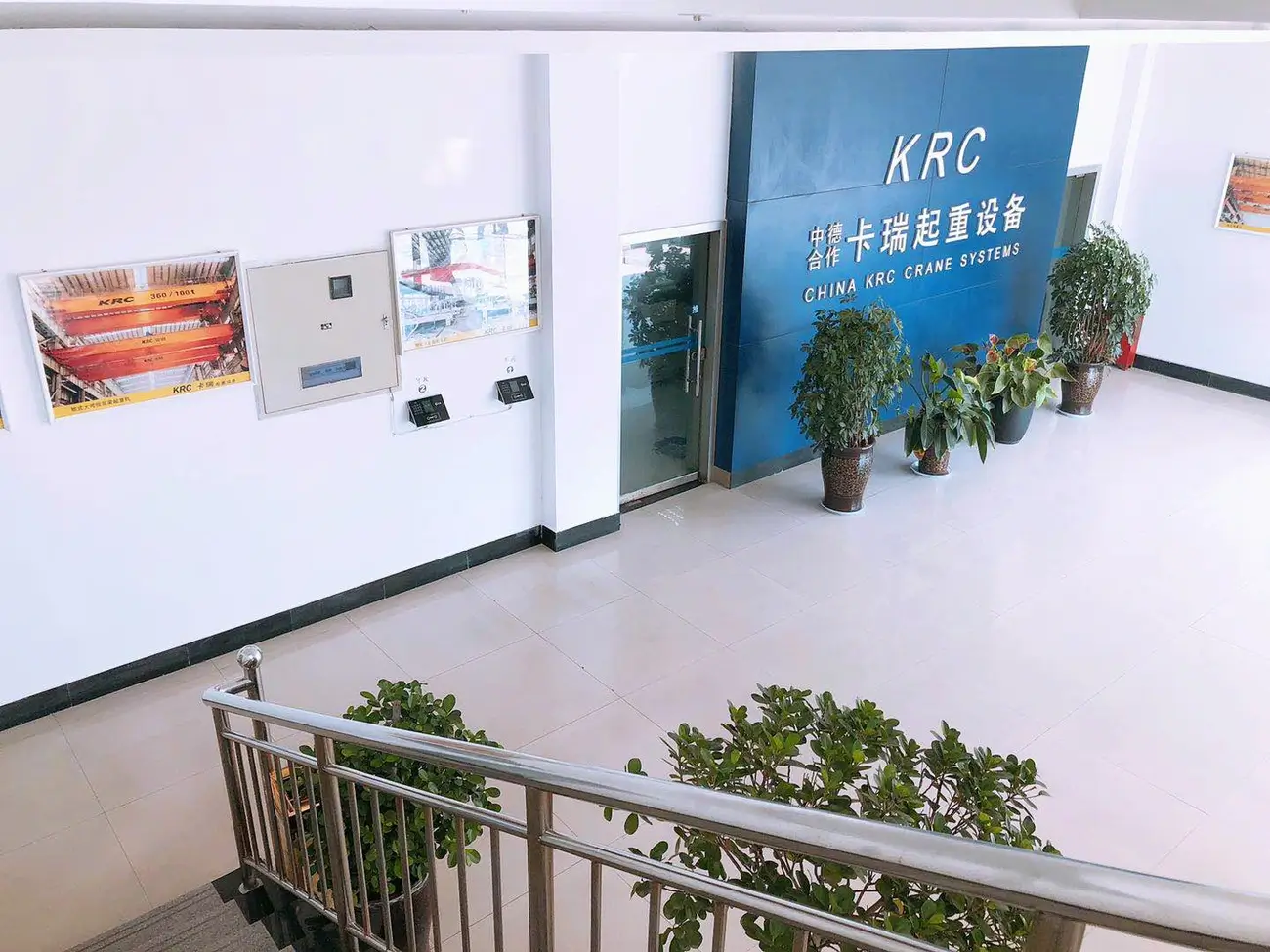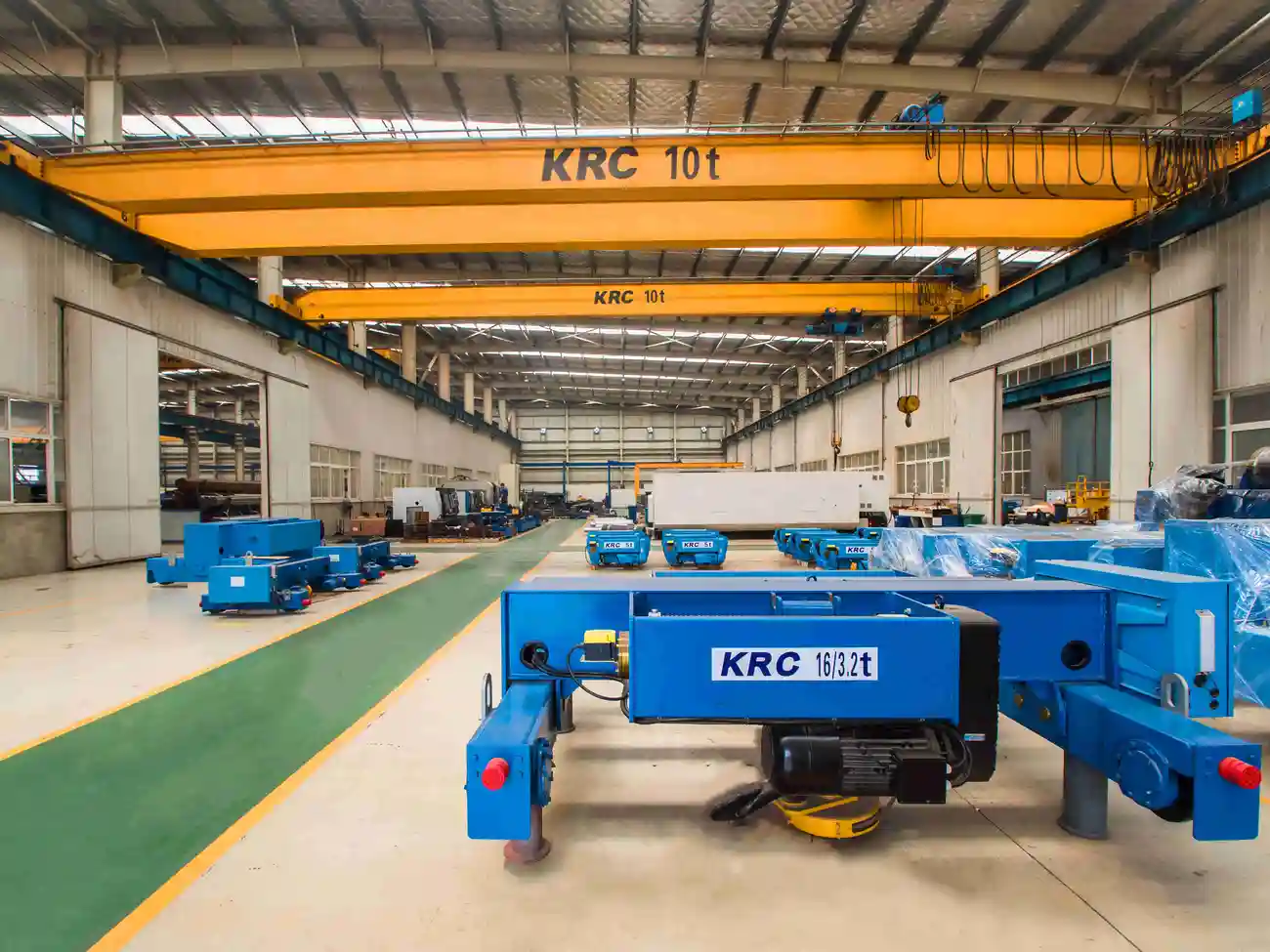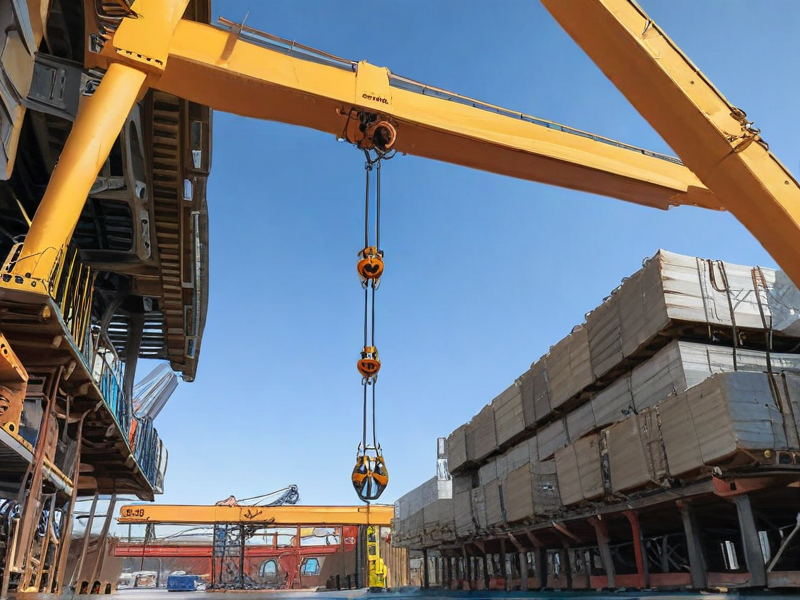Top 10 crane building company in China introduce,list main products and website if have
Here are the top 10 crane building companies in China, along with their main products and websites:
1. Sany Group
– Main Products: Mobile cranes, crawler cranes, tower cranes
– Website: [www.sanyglobal.com](https://www.sanyglobal.com)
2. XCMG (Xuzhou Construction Machinery Group)
– Main Products: All-terrain cranes, truck cranes, crawler cranes, tower cranes
– Website: [www.xcmg.com](https://www.xcmg.com)
3. Zoomlion Heavy Industry Science and Technology Co., Ltd.
– Main Products: Tower cranes, mobile cranes, crawler cranes
– Website: [en.zoomlion.com](https://en.zoomlion.com)
4. China National Heavy Machinery Corporation (CHMC)
– Main Products: Overhead cranes, gantry cranes, port cranes
– Website: [www.chmc.cc](https://www.chmc.cc)
5. Shandong Dahan Construction Machinery Co., Ltd.
– Main Products: Tower cranes, construction hoists
– Website: [www.dahancrane.com](http://www.dahancrane.com)
6. Henan Weihua Heavy Machinery Co., Ltd.
– Main Products: Overhead cranes, gantry cranes, port cranes
– Website: [www.weihuacraneglobal.com](http://www.weihuacraneglobal.com)
7. Guangxi Construction Machinery Co., Ltd. (GCM)
– Main Products: Tower cranes, mobile cranes
– Website: [www.gxgcm.com](http://www.gxgcm.com)
8. Dalian Huarui Heavy Industry Group Co., Ltd. (DHHI)
– Main Products: Port cranes, shipyard cranes, offshore cranes
– Website: [www.dhhi.com.cn](http://www.dhhi.com.cn)
9. Tadano China Co., Ltd.
– Main Products: Hydraulic cranes, truck cranes, rough terrain cranes
– Website: [www.tadano.com](http://www.tadano.com)
10. Zhejiang Construction Machinery Group Co., Ltd. (ZCMG)
– Main Products: Tower cranes, construction hoists

How to find and select check reliable crane building company in China
Finding and selecting a reliable crane building company in China involves several critical steps:
1. Research and Shortlist:
– Use online directories like Alibaba, Made-in-China, and Global Sources.
– Check industry-specific forums and LinkedIn networks for recommendations.
2. Company Verification:
– Visit the company’s official website to verify details like contact information, product range, and history.
– Check for certifications such as ISO 9001, which indicate quality management standards.
– Look for membership in industry associations, signaling credibility.
3. Customer Reviews and Testimonials:
– Read customer reviews on platforms where the company is listed.
– Ask for testimonials or case studies from previous clients, preferably within your industry, to gauge satisfaction levels.
4. Factory Visit:
– If possible, arrange a visit to the company’s manufacturing facility to assess production capabilities and quality control processes.
– Use virtual tours or third-party inspection services if a physical visit is not feasible.
5. Technical Support and After-sales Service:
– Evaluate the company’s technical support and after-sales service offerings.
– Ensure they provide adequate training, maintenance, and repair services.
6. Quotation and Cost Analysis:
– Request detailed quotes from multiple companies.
– Compare pricing, but also consider quality, materials used, and warranty terms.
7. Contract and Terms:
– Carefully review the contract terms, focusing on delivery times, payment terms, and warranty conditions.
– Consider legal consultation to ensure the contract safeguards your interests.
8. Third-party Verification:
– Use third-party services to verify the company’s legitimacy and financial stability.
9. Trial Order:
– Start with a small order to test the company’s reliability and product quality.
By following these steps, you can increase the likelihood of selecting a trustworthy and reliable crane building company in China.
Background Research for crane building company in China, use qcc.com archive.org importyeti.com
Background Research for Crane Building Company in China
Introduction:
Analyzing a crane-building company in China requires delving into its corporate data, historical web archives, and import-export records to provide a well-rounded overview. Utilizing sources like qcc.com, archive.org, and importyeti.com will present a comprehensive picture of the company’s stature, history, and international trade dynamics.
Company Overview:
Qcc.com, a major Chinese enterprise information platform, provides critical insights into a company’s registration data, financial standings, legal proceedings, and business operations. A typical crane-building company would be registered under the category of heavy machinery manufacturing and may display information such as its registration number, legal representative, corporation type, and annual revenue.
Historical Data:
Archive.org, known for its Wayback Machine, allows us to track the historical evolution of the company’s website. By accessing stored snapshots, we can uncover developmental milestones, historical product ranges, key partnerships, and strategic pivots over the years. This helps in understanding the company’s growth trajectory and market adaptability.
Import-Export Insights:
ImportYeti.com is indispensable for digging into a company’s global trade activities. It compiles bill of lading information from various carriers, providing a detailed log of the company’s import and export transactions. Entries would typically cover details like product descriptions, shipment volumes, partnering entities, and trade frequencies. This data helps assess the company’s international footprint, primary markets, and trade reliability.
Conclusion:
By amalgamating insights from qcc.com, archive.org, and importyeti.com, we gain a multidimensional view of a Chinese crane-building company. Qcc.com offers foundational and legal data, archive.org gives historical context, and importyeti.com sheds light on international trade practices. Together, these sources equip stakeholders with the necessary information to make informed decisions regarding collaborations, investments, or market assessments.

Price Cost Research for crane building company in China, use 1688.com and deepl.com translate Chinese to English
To conduct price cost research for a crane building company in China using 1688.com and DeepL.com for translation, follow these steps:
Step-by-Step Process:
1. Open 1688.com:
Visit [1688.com](https://www.1688.com), a leading B2B marketplace in China.
2. Search for Crane Building Equipment:
Use simplified Chinese terms to search for crane-building equipment. Common terms include:
– Crane: 起重机 (Qǐzhòng jī)
– Building Crane: 建筑起重机 (Jiànzhù qǐzhòng jī)
3. Collect Data:
Identify various suppliers offering crane-building equipment. Document the prices, features, and specifications.
4. Translate Pages with DeepL:
Use [DeepL.com](https://www.deepl.com/translator) to translate Chinese descriptions to English. Copy text from 1688.com listings and paste into DeepL for translation.
Example Summary:
Supplier A:
– Product: Building Tower Crane
– Price: ¥150,000 – ¥300,000 (approx. $22,000 – $44,000)
– Specifications: Load capacity 5-15 tons, height 50-100 meters.
– Notable Features: Advanced safety systems, remote control operation.
Supplier B:
– Product: Mobile Crane
– Price: ¥120,000 – ¥250,000 (approx. $17,500 – $36,500)
– Specifications: Load capacity 10-20 tons, hydraulic systems.
– Notable Features: Off-road capabilities, quick setup.
Supplier C:
– Product: Overhead Crane
– Price: ¥80,000 – ¥200,000 (approx. $12,000 – $29,000)
– Specifications: Load capacity 5-10 tons, span 10-30 meters.
– Notable Features: Easy installation, energy-efficient.
Key Takeaways:
– Price Range: Cranes range from ¥80,000 to ¥300,000 depending on type and specifications.
– Common Features: Safety systems, remote control, and efficiency features.
– Market Variability: Prices vary widely with significant differences in load capacities and advanced features.
Use these steps and example insights to guide your comprehensive cost research for a crane building company in China.
Compare China and Other crane building company: Products Quality and Price,Visible and Hidden Costs
Comparing China’s crane manufacturing industry to other global crane builders reveals notable differences in terms of product quality, pricing, and associated costs.
Product Quality and Price:
Chinese cranes generally offer competitive pricing, a major draw for buyers looking to economize. Companies like SANY and Zoomlion have made strides in improving product quality, but they often still lag behind top-tier Western counterparts such as Liebherr and Manitowoc. The latter brands are renowned for their superior engineering, reliability, and longer lifespan, which justify their premium prices.
Visible and Hidden Costs:
Visible costs in crane procurement are the upfront purchase prices. Chinese manufacturers often undercut competitors, providing a lower initial investment. However, hidden costs can emerge over time.
Hidden Costs:
1. Maintenance and Repairs: Chinese cranes may incur higher maintenance costs due to potentially lower durability and the need for more frequent repairs.
2. Operational Downtime: Higher incidences of breakdowns can lead to project delays and increased operational downtime.
3. Resale Value: Chinese cranes typically have lower resale values compared to their Western counterparts.
4. Training and Support: Language barriers and varying standards could complicate training and technical support when purchasing from Chinese manufacturers.
In contrast, cranes from leading global producers often entail higher upfront costs but typically manifest lower hidden costs due to their reliability, extensive service networks, and stronger warranties.
In summary, while Chinese cranes are attractive for their lower initial prices, potential hidden costs related to maintenance, operational downtime, and reduced resale value may offset these savings. Western brands, despite their higher prices, offer better-engineered products with potentially lower long-term costs, making them a more viable option for projects where reliability and total cost of ownership are critical.
Custom Private Labeling and Branding Opportunities with Chinese crane building company
Partnering with a Chinese crane building company for custom private labeling and branding offers substantial opportunities for businesses looking to differentiate themselves in the competitive market of construction machinery.
1. Tailored Solutions:
Chinese companies are known for their manufacturing flexibility. They can tailor their crane technology to meet specific requirements, accommodating unique design features, color schemes, and functionalities that align with your brand’s identity.
2. Cost-Effectiveness:
Manufacturing in China often comes with lower production costs due to cheaper labor and material expenses. This economic advantage allows you to offer competitively priced products without compromising on quality, thereby improving your profit margins.
3. Advanced Technologies:
China’s crane manufacturers are at the forefront of innovation, integrating advanced technologies such as IoT, AI, and automation into their cranes. Partnering with these firms ensures you are offering state-of-the-art equipment to your customers, enhancing your brand’s reputation for quality and reliability.
4. Scale and Efficiency:
Chinese factories operate at a scale that can handle large orders efficiently. This scalability ensures that you can meet market demands promptly, maintaining a reliable supply chain that is crucial for building customer trust.
5. Expertise and Experience:
Chinese crane manufacturers have extensive experience in both domestic and international markets. Their engineering expertise and industry know-how can help you navigate technical challenges, ensuring your private-labeled products meet global safety and quality standards.
6. Enhanced Market Penetration:
With a branded product line tailored to your specifications, you can penetrate new markets more effectively. The exclusivity and custom features of your cranes can attract a specific customer segment, positioning your brand as a leader in innovation and customer-centric solutions.
Conclusion:
Leveraging the custom private labeling and branding capabilities of Chinese crane manufacturers can significantly enhance your market position. The right partnership can deliver high-quality, cost-effective, and technologically advanced crane solutions that reflect your brand’s identity and meet your business growth objectives.
Tips for Procurement and Considerations when Purchasing from crane building company
When procuring a crane from a crane building company, thoughtful consideration is essential to ensure safety, efficiency, and value for money. Here are some key tips and considerations:
1. Assess Your Needs:
– Capacity Requirements: Determine the maximum weight the crane needs to lift.
– Type of Crane: Decide between overhead, gantry, mobile, or tower cranes based on operational needs.
– Usage Frequency: Evaluate how often the crane will be used to ensure durability and longevity.
2. Vendor Reputation:
– Experience: Choose companies with a proven track record in crane manufacturing.
– Reviews and References: Check customer reviews and request references to gauge reliability and customer satisfaction.
– Certifications: Ensure the company complies with industry standards and holds necessary certifications.
3. Technical Specifications:
– Technology and Innovation: Look for advanced features that enhance safety and efficiency.
– Customization: Determine if the vendor can customize the crane to meet specific operational requirements.
– Maintenance and Support: Assess the availability of post-purchase support and regular maintenance services.
4. Cost Considerations:
– Initial Cost vs. Long-Term Value: Weigh the upfront cost against long-term benefits like durability, energy efficiency, and reduced maintenance costs.
– Total Cost of Ownership (TCO): Include installation, training, maintenance, and potential downtime in your cost evaluation.
5. Safety and Compliance:
– Safety Features: Prioritize cranes with robust safety mechanisms to prevent accidents.
– Regulatory Compliance: Ensure the crane meets all local and international safety and operational standards.
6. Delivery and Installation:
– Lead Time: Confirm the delivery timeline and installation process.
– Warranty and Guarantee: Understand the warranty period and what it covers.
By meticulously evaluating these factors, businesses can make informed procurement decisions that maximize both performance and investment in crane infrastructure.

FAQs on Sourcing and Manufacturing from crane building company in China
FAQs on Sourcing and Manufacturing from a Crane Building Company in China
1. Why source cranes from China?
Sourcing cranes from China offers cost advantages, high-quality manufacturing, and scalability. Chinese companies often use advanced technology and adhere to international standards.
2. How do I identify a reliable crane manufacturer in China?
Check for certifications like ISO, CE, and others. Read client testimonials and ask for references. Visit the factory if possible to assess capabilities and quality control processes.
3. What types of cranes do Chinese companies manufacture?
Chinese manufacturers produce various cranes, including overhead cranes, gantry cranes, tower cranes, and mobile cranes, among others.
4. What should I consider when requesting a quote?
Provide detailed specifications, including load capacity, dimensions, operating environment, and any custom requirements. This ensures accurate and competitive quotations.
5. How is quality assured in Chinese manufacturing?
Reputable manufacturers follow stringent quality control processes, including material inspection, performance tests, and adherence to international standards.
6. Can I get customized cranes according to my needs?
Yes, many Chinese manufacturers offer customization services to meet specific requirements, from design modifications to incorporating advanced features.
7. What is the typical lead time for manufacturing cranes?
Lead times can vary but generally range from 30 to 90 days, depending on the complexity and quantity of the order.
8. What are the payment terms?
Common terms include a 30% deposit upon order placement and the remaining 70% before shipment. Terms can be negotiated based on partnerships and order size.
9. How is shipping handled?
Cranes are shipped by sea in containers or as bulk cargo. The manufacturer typically handles logistics, including documentation and customs clearance.
10. Is after-sales support available?
Reputable companies offer comprehensive after-sales services, including installation guidance, training, and maintenance support.
11. How do I handle communication barriers?
Many Chinese manufacturers employ multilingual staff or agents who facilitate efficient communication in English and other languages.
12. What about compliance with local regulations?
Ensure that the cranes meet local standards and regulations. Reputable manufacturers are familiar with exporting requirements and can assist in compliance.
These FAQs should provide a foundational understanding of sourcing and manufacturing cranes from China efficiently.

